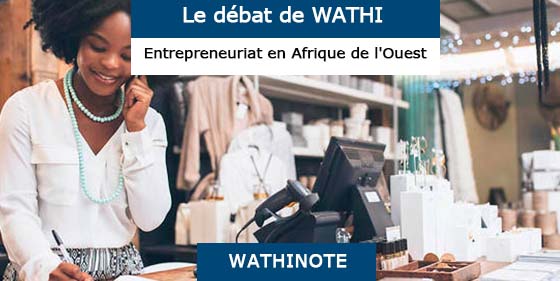

Author: Aimée Dushime
Site of publication: World Economic Forum
Type of publication: Article
Date of publication: August 19th, 2022
An African drive for gender equality and women’s empowerment has consequently given rise to women entrepreneurs and female led startups on the continent. Sub-Saharan Africa, in particular, has the world’s highest rate of women involved in entrepreneurial activity at 26%. According to the MasterCard Index of Women Entrepreneurs (MIWE) 2021, Botswana, South Africa and Ghana are among the countries with the highest percentage of women entrepreneurs globally.
The index reveals that these countries not only have a high percentage of female-owned businesses but also formally support women entrepreneurs. Research shows that women make up 58% of Africa’s self-employed population and are more likely to become entrepreneurs than men.
This reveal has profound implications. Female led startups in Africa and beyond are not only as profitable (if not more) than male led startups but more likely to drive women’s empowerment and make a positive social impact on the continent. That said, the gender gap in Africa may not be closing anytime soon in light of the numerous challenges women entrepreneurs face around funding their businesses.
Economic potential of female led startups
The African Development Bank (AfDB) has asserted that female led startups are key drivers of economic development and contribute to financial integration in the continent through job creation. As such, African governments can boost economic growth and lift millions out of poverty by unleashing the potential of women entrepreneurs, as stated by the World Bank, transforming the continent with the right policies and interventions.
Harvard research also shows that increasing the rate of female-owned businesses and reducing gender gaps in Africa are growth enhancing. Meanwhile, a study from management consultancy Roland Berger notes that women entrepreneurs contribute between $250 billion and $300 billion to African economic growth, equivalent to about 13% of the continent’s GDP.
Even on a global scale, the female economy is considered the world’s largest emerging market, which has the potential to contribute $12 trillion to global GDP by 2025. Moreover, female entrepreneurs create employment opportunities for themselves and others and drive community development and improved living conditions on the continent. By introducing new products to the African start-up economy, female founders boost productivity and create competition in male-dominated markets.
According to a McKinsey study on the power of parity in Africa, women contributed 33% of the continent’s collective GDP in 2018. Indeed, African governments can achieve more growth by unleashing the potential of female led startups and creating an equitable business environment for them to thrive. In Sub-Saharan Africa, research shows that there is currently a $42 billion funding gap for women entrepreneurs.
Even on a global scale, the female economy is considered the world’s largest emerging market, which has the potential to contribute $12 trillion to global GDP by 2025. Moreover, female entrepreneurs create employment opportunities for themselves and others and drive community development and improved living conditions on the continent
It is projected, however, that Africa could gain $316 billion in GDP by 2025 if the gender gap is bridged. African governments thus have a vested interest in implementing the right policies to protect women entrepreneurs and address the challenges that prevent their businesses from succeeding like men’s. Supporting women’s entrepreneurship is a route to economic empowerment and quality of life for African households if women then contribute their income to those living with them, including their families. In a post-COVID era where many African economies are recovering from the pandemic’s adverse economic effects, such efforts become even more urgent.
Kick-starting female led startups in Africa
The crucial role of female led startups in Africa means that African governments and policymakers must address the socio-cultural constraints that limit female founders’ growth potential and reduce their engagement in the African start-up space.
African policymakers can manage the funding challenge African female owned startups face by adopting gender-focused policies, such as Gender Responsive Budgeting (GRB), which helps to improve the allocation of public funds to female owned businesses. As well as strengthening women’s rights through legislation, African governments can use GRB to address gender bias and discrimination against female founders of startups.
African countries can also use the African Continental Free Trade Agreement (AfCFTA), which aims to create a single continental market for goods and services and boost intra-Africa trade. AfCTA could be utilised to develop an enfranchising environment for female founders, allowing African women entrepreneurs to expand their businesses across the continent.
Redressing gender disparities doesn’t just put those in power on the right side of history; it benefits them by enriching their entire countries, providing them with a vested interest in creating an enriching environment for female entrepreneurs.
Les Wathinotes sont soit des résumés de publications sélectionnées par WATHI, conformes aux résumés originaux, soit des versions modifiées des résumés originaux, soit des extraits choisis par WATHI compte tenu de leur pertinence par rapport au thème du Débat. Lorsque les publications et leurs résumés ne sont disponibles qu’en français ou en anglais, WATHI se charge de la traduction des extraits choisis dans l’autre langue. Toutes les Wathinotes renvoient aux publications originales et intégrales qui ne sont pas hébergées par le site de WATHI, et sont destinées à promouvoir la lecture de ces documents, fruit du travail de recherche d’universitaires et d’experts.
The Wathinotes are either original abstracts of publications selected by WATHI, modified original summaries or publication quotes selected for their relevance for the theme of the Debate. When publications and abstracts are only available either in French or in English, the translation is done by WATHI. All the Wathinotes link to the original and integral publications that are not hosted on the WATHI website. WATHI participates to the promotion of these documents that have been written by university professors and experts.
